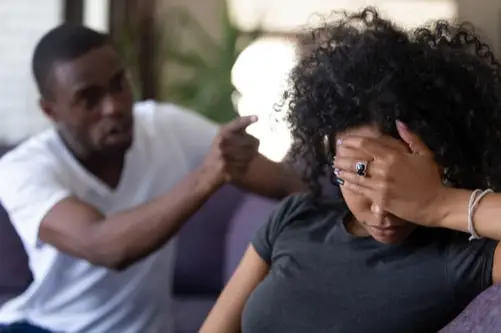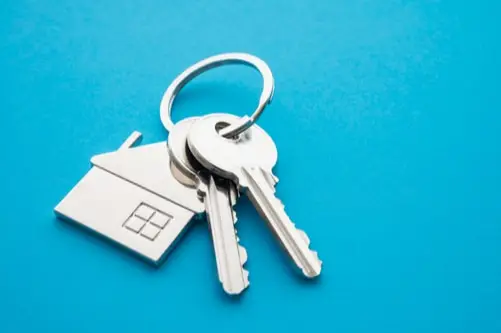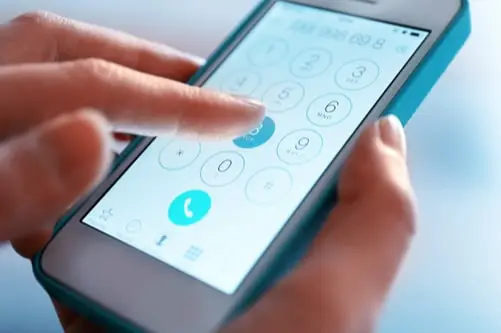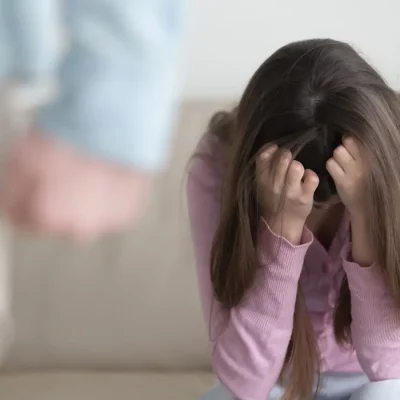In the United States, an average of 20 people per minute is physically abused by their partners. These numbers only get higher when you start looking at other types of abuse.
Every relationship has its ups and downs, but there’s a vast difference between the occasional argument and an unhealthy, damaging relationship.
If leaving your abusive partner seems overwhelming or impossible, we’re here to talk you through the process from start to finish.
Whatever your current situation, it’s essential for you to create a personalized safety plan for how you’re going to leave. Here is a simple but thorough guide on how to leave an abusive relationship and start putting yourself first.
Signs of an Abusive Relationship
When it comes to abuse, it’s always better to err on the side of caution. You know your relationship and situation better than anyone else does. If your gut says something is wrong – listen to it!
If you aren’t sure if you’re experiencing abuse, let’s break down the most common signs of an abusive relationship.
Controlling Behavior
One of the easiest signs of an abusive relationship is that one partner has nearly complete control of the other. They make the decisions and rule the relationship.
Signs to look out for include:
- Timing how long you leave the house for
- Telling you how to dress
- Controlling who you can and cannot speak to
- Controlling your finances or keeping them from you entirely
- Limiting where you’re allowed to go
- Checking the odometer on your car
They may try to justify this behavior by saying they’re looking out for you and that their questions show that they care. But, one of the signs of a healthy relationship is a balance of power.

High Levels of Jealousy
Jealousy is a sign of insecurity, but an abuser insists that they are jealous because they love you. They accuse you of flirting when you’re friendly, are possessive over your time, and question your intentions when you spend time with your friends.
They may drop by work or social functions unexpectedly to “make sure you aren’t cheating” or refuse to let you go anywhere alone.
Relationship anxiety is normal, but this level of jealousy can be an early sign of an abusive partner.
Extreme and Unrealistic Expectations
An abusive partner will expect you to behave perfectly and will become enraged when you make a mistake or act in a way they haven’t anticipated.
They also expect you to meet all their needs whenever they want them to be met.
They believe that they are all that you need. They are angered by the idea that you have needs outside of them. They say things like, “if you really loved me, you wouldn’t need anything else.”
Isolation
Abusers slowly isolate their partners and make them feel completely alone. They do this by controlling who you see and talk to and by openly disapproving of everything your friends and family say. Over time, seeing your friends doesn’t feel worth the backlash that your partner gives you afterward and you stop reaching out.
This isolation makes it harder for you to leave them. Basically, you’re convinced you have no one besides your partner.
Verbal Abuse
Abusive partners hurt you physically and emotionally. They degrade your character, curse at you, call you hurtful names, and belittle, undermine, or dismiss your accomplishments.

They tell you that you wouldn’t function without them in your life, that you don’t deserve them, and convince you that you’re worthless.
Abusers often embarrass their partners in public by poking fun or putting them down. They justify this behavior by saying they’re just joking or that you’re being too sensitive. Every now and then they might give you an apology, but this is a type of manipulation if their actions don’t change.
Protecting Yourself Until You Can Leave
Leaving an abusive relationship is seldom as easy as packing a bag and walking out the front door. An abusive partner gains control of your finances, restricts your ability to get around town alone, and strictly monitors your phone and laptop usage.
If they suspect you might try to leave soon, they can become even more violent and controlling to try to prevent you from regaining your independence.
Here are a couple of things to do to keep yourself safe before you’re ready to leave for good.
Find Safe Spaces
Start by identifying safe spaces in and around your home. Know which areas have no weapons or things that could be used as weapons.
Make a note of potential escape routes from every room, keeping in mind emergency exits like windows.
Have a System of Code Words
An abusive relationship has the potential to escalate and become life-threatening extremely quickly. If you have a neighbor you can trust, tell them about your situation and create a set of code words to alert them that you need help immediately.
Talk through what you need their next steps to be when you contact them. They could call the police, fetch your kids, or anything else that keeps you and your family safe.
If you have children, make code words for them too. Make sure they know to never try to intervene while your partner is violent.
You can have a code word that tells them it’s time to hide, leave the house and go to the neighbors’, or phone an emergency contact. Teach them how to dial 9-1-1 and talk them through what they must say when they phone for help.
Keep the Car Fueled
Because abusive relationships are unpredictable, you never know when you’ll have the chance to get out or the need to leave as quickly as possible.
Keep your car’s tank full and ready to ride at a moment’s notice. You can also get into the habit of leaving all the doors locked except for the driver’s door so you don’t have to fumble with keys before you can start driving.
Make a Copy of Your Keys
An abusive partner will try to take control of your whereabouts by taking away your keys to keep you from being able to leave. If they haven’t done this already, have an extra set of keys made and hide them in a safe place.

In an emergency, you can grab your extra set of keys and get out of the house. Teach your kids where the keys are hidden and have a code word for when they need to use them to escape.
Avoid Scarves and Necklaces
Even if your partner has never tried to strangle you before, your leaving might trigger them into a bigger rage than you’ve dealt with before. For this reason, avoid wearing scarves and long jewelry that they could grab hold of and hurt you with.
Taking these precautions may feel drastic, but it is always better to be safe.
How to Leave an Abusive Relationship
Whether the situation becomes too dangerous for you to remain or you have a rare chance to escape, there will come a moment where you are ready and able to leave.
Your safety, and the safety of your kids and pets, is the most important thing in this situation. Follow these steps to put yourself first and leave your abusive relationship.

Create a Safety Plan
Your safety plan is an outline of steps you’ll take when leaving your partner to keep you protected throughout the process. It includes actionable steps that reduce your risk of harm and danger when leaving your partner.
When creating your own safety plan, be sure to include the following:
1. Important Contacts
A good support system is essential when leaving an abusive partner. Reach out to family, close friends, neighbors, or colleagues and ask if they can help you before or after you leave your partner.
They could give you a place to stay, look after your pets, help you navigate situations where you encounter your partner, provide transport for you or your children, and provide any other type of assistance you may require.
2. Important Items to Take When You Leave
Keep a list (even a mental one will do!) of important things to remember when you leave. This could be chronic medication, important documents, or warm clothes during winter.
3. Steps to Navigate Various Potential Situations With Your Partner
Plan out how you will react if you bump into your partner in a store, outside work, or anywhere else in your day-to-day movements. If you have a script to follow, you are less likely to panic and make decisions that don’t keep you safe.
Plan what you’ll say, who you’ll contact to fetch you and take you away from the area, or anything else that will ensure you’re safe and comfortable moving around your town.
After You Leave
Once you’ve left an abusive relationship, the danger unfortunately doesn’t disappear entirely. In some cases, you might even be at greater risk after leaving.
Here are steps to take to keep yourself, your kids, and your pets safe.
Change Your Phone Number
Changing your phone number may be inconvenient, but it makes it more difficult for your abuser to contact you or potentially tract your phone. You can let your work, family, and close friends know that as soon as you leave you’ll be using a different number.

Alter Your Routine
Your abuser may try to stalk or intercept you as you go about your regular routine. To make this more difficult for them, alter your routine in as many ways as you can.
Start by taking different routes to work, social spots, and your kids’ school. This mixes up your routine and makes it harder for your abuser to find you.
If possible, alter your work hours by asking for a different schedule. Use different stores and see your friends in new locations. It can be hard removing yourself from familiar places that you feel comfortable in, but it’s essential to keep yourself safe.
Alert Your Child’s School of Your Situation
Alert your child’s school of your situation. Abusive partners often try to gain the upper hand by showing up at the child’s school without permission or taking them home and holding them as an excuse to see you.
This is extremely dangerous for you and for your children, so it’s important to inform the school and ensure the abuser can’t force you to interact with them.
Upgrade Your Home’s Security
Once you’ve found a home your abuser doesn’t have access to, it’s a good idea to up the security as much as you can.
Replace wooden doors with steel doors, install a security system, and add motion sensor lights to your front yard to deter the abuser from waiting for you in the shadows.
Go to Therapy
Therapy is essential when recovering from abuse. Working with a therapist lets you process trauma, reestablish your self-worth, and ultimately find healing.
On top of this healing, therapy helps strengthen your future relationships by teaching you how to set and maintain healthy boundaries.
Tell Your Work About The Situation
Without needing to go into detail, it’s helpful explaining your general situation to your colleagues. Let them know you’ve left a dangerous relationship and that you don’t want to see the abuser. This way, your colleagues know not to let your abuser into your office or building.
Investigate the Legal System
Find out from your local police department if you can get a restraining order against your abuser. Legal aid helps survivors of domestic violence keep themselves and their children safe.
The police will also be able to give you other suggestions and tips for staying safe after leaving an abusive relationship.
Start Putting Yourself First
You deserve to be happy. An abusive relationship causes you to doubt your worth and your value, but what your partner says isn’t the truth.
If you’re stuck with an abusive partner, you now have the steps to put yourself first and leave the relationship. Having a plan in place empowers you to regain control of your independence and self-worth.
If you’re currently in an abusive relationship, about to leave an abusive relationship, or have recently left, it’s important to give yourself the support and help you deserve. Here at Makin Wellness, we’re here to help you find healing on this difficult and isolating journey. Schedule an appointment with us today to get the support that you deserve.









This Post Has 2 Comments
It’s great that you elaborated that having your own safety plan is one of the best things to consider for your mental health. My friend told me the other night that he was hoping to find a therapy that could help him heal from negative criticism from his relationship. He asked if I had thoughts on the best option to consider. I value this instructive article, I’ll tell him that he can consult a narcissistic abuse therapist for more details about the recovery process.
Hi Steve, thank you for your feedback. If your friend is looking for therapy, feel free to give him our phone number (833) 274-4325 or our website http://www.makinwellness.com so he can schedule an introductory call with one of our team members. We’re here to help!